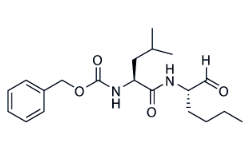Since both immune BAY-60-7550 responses depend on intracellular signal transduction by stress responsive transcription factors, we targeted the nuclear import mechanism with a first-in-class, cell-penetrating nuclear import inhibitor. We found that short-term intracellular delivery of this inhibitor afforded long-term protection of the islets from inflammation-driven apoptosis. This long-lasting islet-protecting effect, which arrests diabetes progression without the need for insulin therapy, appears to involve the precipitous reduction of autoreactive lymphocytes through enhancement of activation-induced cell death of T and B lymphocytes. Moreover, this salutary effect of short-term nuclear import targeting is associated with reprogramming of the pro-inflammatory and anti-inflammatory cytokine profile of immune cells isolated from NOD mice. The ultimately fatal outcome of autoimmune diabetes in the widely used and clinically relevant murine NOD model of human T1D depends on progressive and relentless destruction of insulin producing beta cells in pancreatic islets and is inevitable unless insulin-replacement therapy is instituted. We investigated the possibility of protecting islets from autoimmune attack by intracellular delivery of a nuclear import inhibitory peptide. Our results indicate that cSN50 effectively protected islets from immune destruction. This protection is vested in significant reduction of islet-reactive T cells, restoration of the sensitivity of T and B cells to AICD, suppression of islet-toxic proinflammatory cytokine production in primary T and B cells and macrophages isolated from NOD mice, and preservation of a key anti-inflammatory cytokine, IL-10. Thus, a nuclear import inhibitor extinguished autoimmune inflammation-driven islet loss and prevented further progression of diabetes thereby obviating the need for insulin replacement therapy. Remarkably, none of the cSN50 peptide-treated INCB28060 supply animals developed hyperglycemia during the first phase of diabetes onset occurring between days 10�C30 after receiving a bolus of cyclophosphamide, which synchronized the autoimmune diabetes process in NOD mice. In addition to this early protective effect, cSN50 treatment also afforded significant long-term islet protection. While another half of Cy-synchronized control animals progressed to diabetes between days 50 and 100, only two of twenty cSN50treated animals developed diabetes, a finding suggesting that cSN50 treatment resulted in long-term islet protection in NOD mice that are genetically-prone to T1D. This favorable outcome is supported by our demonstration of in vivo elimination of islet-infiltrating and islet-reactive lymphocytes, most likely through enhanced AICD, which was demonstrated ex vivo in cSN50 peptide-treated T and B cells. Our data indicate that at higher  levels of stimulation, the sensitivity to AICD is further increased by the nuclear import inhibitory peptide. Thus, chronic activation of isletinfiltrating T and B cells in autoimmune diabetes may favor the AICD-enhancing effect of the nuclear import inhibitor. This hitherto unreported action of cSN50 in a relevant preclinical T1D model adds autoimmune inflammation to the list of conditions in which a nuclear import inhibitor has displayed therapeutic utility. We have previously demonstrated the efficacy of nuclear import inhibitor delivery and its anti-inflammatory and cytoprotective action in acute inflammation models, including lethal challenge with superantigen, staphylococcal enterotoxin B, and lipopolysaccharide, which trigger acute inflammatory lung and liver injury.
levels of stimulation, the sensitivity to AICD is further increased by the nuclear import inhibitory peptide. Thus, chronic activation of isletinfiltrating T and B cells in autoimmune diabetes may favor the AICD-enhancing effect of the nuclear import inhibitor. This hitherto unreported action of cSN50 in a relevant preclinical T1D model adds autoimmune inflammation to the list of conditions in which a nuclear import inhibitor has displayed therapeutic utility. We have previously demonstrated the efficacy of nuclear import inhibitor delivery and its anti-inflammatory and cytoprotective action in acute inflammation models, including lethal challenge with superantigen, staphylococcal enterotoxin B, and lipopolysaccharide, which trigger acute inflammatory lung and liver injury.
We have documented inhibition of nuclear entry of stress-responsive transcription factors
Leave a reply